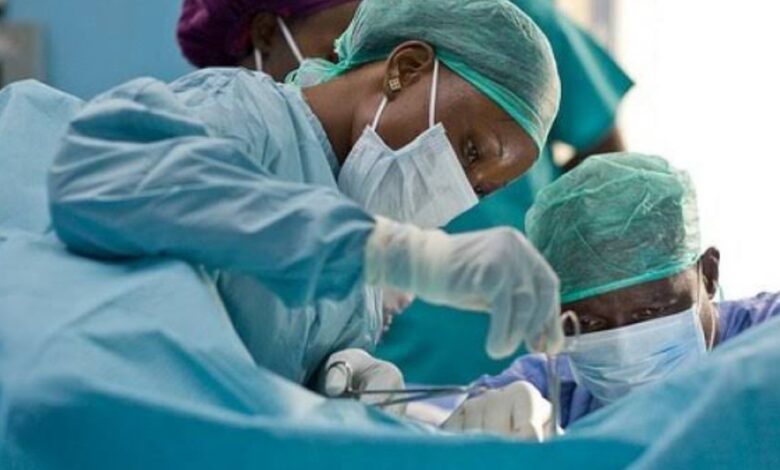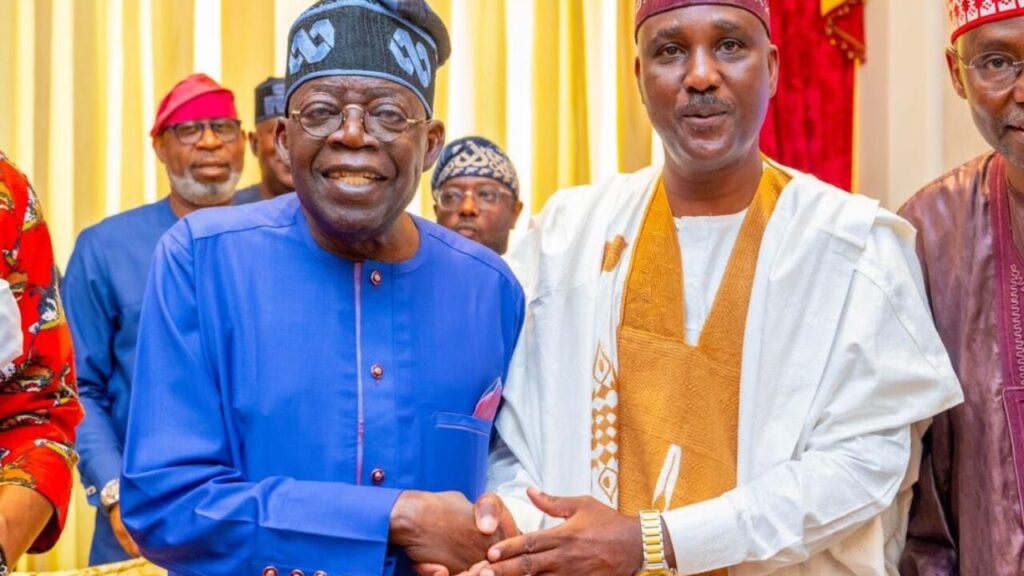Nigerian Hospitals Send Patients Home As Doctors’ Strike Begins
Resident doctors, who make up the bulk of medical personnel in Nigeria’s specialist hospitals, embarked on indefinite strike on July 26. Since then, patients have been discharged and their treatment suspended.

Yomi Adedokun’s* mother has been discharged prematurely from the hospital she is in, due to the strike action of National Association of Resident Doctors (NARD).
Adedokun’s 50-year-old mother is suffering from bipolar affective disorder, a condition associated with episodes of mood swings ranging from depressive lows to abnormal high levels of energy.
When she’s at her worst, she destroys property, attacks people around her and sometimes, injures herself.
“She was taken to the hospital in early June. To keep her stable, we need a lot of physical and financial effort. We have however, returned her home following the strike action of resident doctors. We were directed to vacate the hospital because there are no doctors to attend to patients.”
Asked if his mother was due to be discharged from the Ekiti State University Teaching Hospital (ESUTH), he said:“No”.
“Her doctor had told us a day before the strike commenced that her compliance with treatment is poor. Now, we are scared that she may relapse before the strike is called off.”
Scared that her mother’s condition may get worse, Yomi reached out to the doctor who said he could not help because he does not have a private practice to manage his patient’s condition.
“We can only pray to God and consult a traditional doctor while the doctors’ strike lasts.”
The strike action
The resident doctors who make up a bulk of medical personnel in Nigeria’s tertiary hospitals, embarked on indefinite strike on July 26. Since then, health activities have been crippled in the health sector.
Alfa Yusuf, spokesperson of the protesting residents doctors told HumAngle that they are demanding the immediate payment of the 2023 Medical Residency Training Fund (MRTF), upward review of the Consolidated Medical Salary Structure (CONMESS) and payment of all salary arrears that government owed its members since 2014.
“Our grievances are many and we have given the government several ultimatums. We understand that we have a new administration and if the government promised to hit the ground running, it should address our demands.
“We have lost a lot of doctors to the ‘japa syndrome’ [leaving to work in other countries] but no recruitment of replacements. We want recruitment of clinical staff in the hospitals and eradication of the bureaucratic limitations to the immediate replacement of doctors who have left Nigeria to other countries.”
The body has in the last few years recorded a declining membership rate as doctors pursue prospects of better remuneration, up-skilling opportunities, and improved standards of living in developed countries.

While development has led to the shortage of doctors, the medical practitioners remaining are overworked and poorly cared for, said Yusuf.
He added that the situation is taking a devastating toll on Nigerians, who are often forced to wait long periods of time to see a doctor and sometimes do not even access the care they need at the appropriate time.
“We want the best for Nigerians but we must also do the best for ourselves. We are not respected as healthcare providers. We love our patients but the strike is the last thing we could do. Let the few consultants and house officers in the hospitals render skeletal services to patients.”
Lamentations
Adedokun’s mother is not the only patient affected. Some people had their surgery appointment postponed indefinitely.
A source who prefers not to be named said her mother had been diagnosed with breast cancer, but a nurse at the oncology department of Lagos State University Teaching Hospital (LASUTH) advised him to take her to another hospital.
“I was advised to take my mother to another hospital. Even when I tried to get another date for an appointment, I was told I could not because the strike is indefinite,” he said.
“I am considering a private hospital but I have to call my siblings so that we can all start looking for money to address my mother’s needs. Certainly, a private hospital will cost us more but we’ve got no choice but to save up.”
Some doctors are not also happy to see their patients suffer but there’s nothing to do to savage the pain.
Victor Olatunji, a medical doctor at ESUTH explained that he started practicing as a full-time doctor in 2010 with a dream to always put a smile on the faces of his patients and their relatives.
But the incessant strike actions in the health sector make such a dream difficult to achieve.
“I am worried that the situation of some of my patients may get worse before the strike is called off. Some families would have to pay more money for the treatment in private hospitals.
“I know a lot of diabetes patients who need to see their doctors regularly. By the time the strike is called off, some would have died and the lucky ones would have their condition worsened,” he laments.
Frustration
Doctors also told our reporter that the hike in fuel prices and other cost of living in the country make meeting the needs of their families difficult.
Olantunji said poor welfare of doctors have made some members regret studying medicine.
“It is sad that despite the workload as a result of the high number of doctors leaving the country monthly, our salaries are not regular. I have friends who have left the country and they share their success stories with us.”
“Family members think you are rich as a doctor but we are suffering in silence. As a resident doctor. Between 2014 and 2016, there are two years of arrears not paid and many of the people have even passed residency but they still need to be paid because they work for it.”
Olatunji argued that until their overdue arrears are paid and proper attention is given to health workers, the problem will continue to linger and more patients will suffer.
Authorities
Following the declaration of strike, the Speaker of the House of Representatives, Tajudeen Abbas, met with President Bola Tinubu and assured the doctors that there are plans to meet some of their demands.

“We have already set up an ad-hoc committee chaired by the majority leader of the House to look at the issues they raised. I am sure one or two interventions in their areas of concern will prevail on them to come back to the negotiation table.”
Although the government has approved a 25 per cent basic salary increase and ₦25,000 peculiar allowance for medical and dental doctors in the federal public service, NARD rejected the offer, insisting that they want the immediate payment of the 2023 Medical Residency Training Fund (MRTF), payment of all salaries and arrears, including the salary arrears of 2014-2016, arrears of hazard allowance, arrears of consequential adjustment of the minimum wage, and promotion arrears.
*Name changed to protect identity
Support Our Journalism
There are millions of ordinary people affected by conflict in Africa whose stories are missing in the mainstream media. HumAngle is determined to tell those challenging and under-reported stories, hoping that the people impacted by these conflicts will find the safety and security they deserve.
To ensure that we continue to provide public service coverage, we have a small favour to ask you. We want you to be part of our journalistic endeavour by contributing a token to us.
Your donation will further promote a robust, free, and independent media.
Donate HereStay Closer To The Stories That Matter




